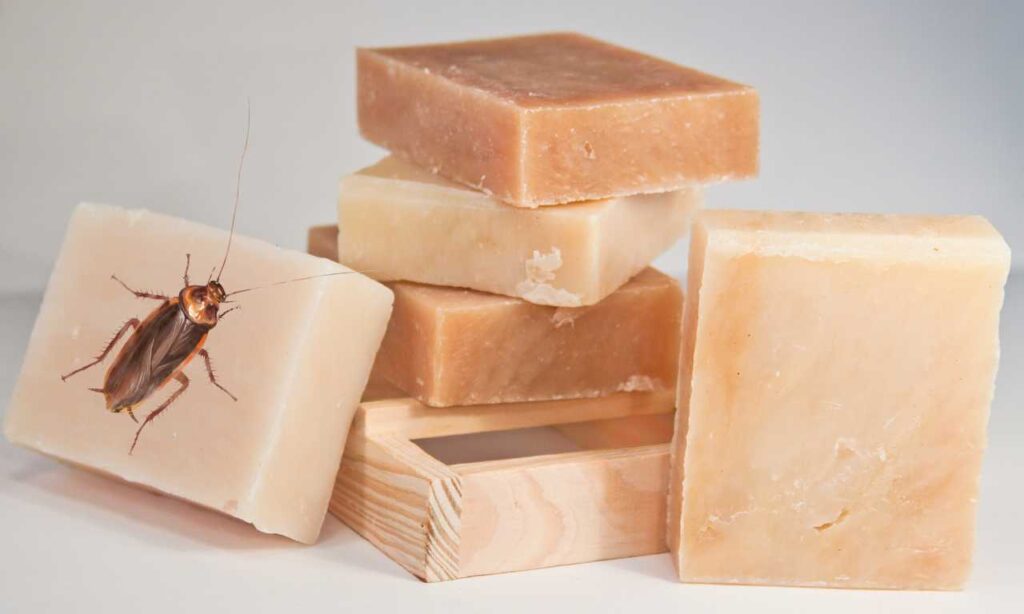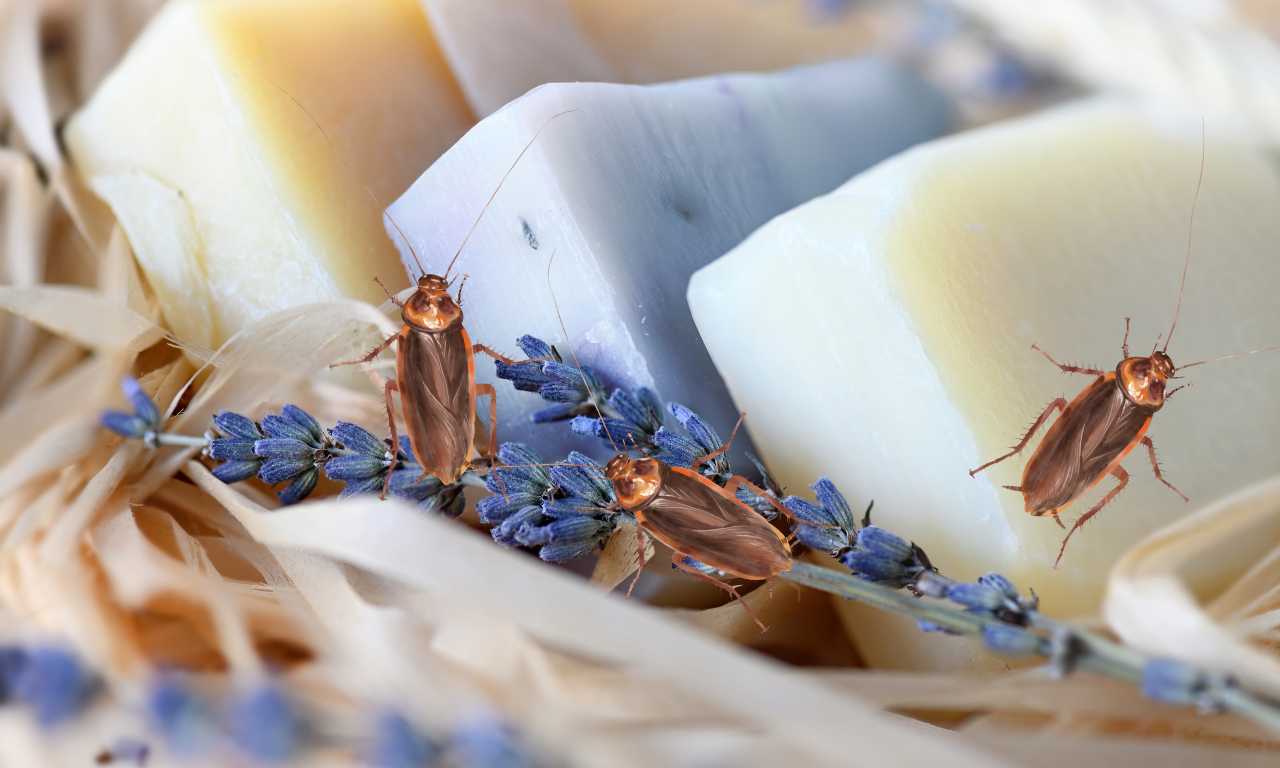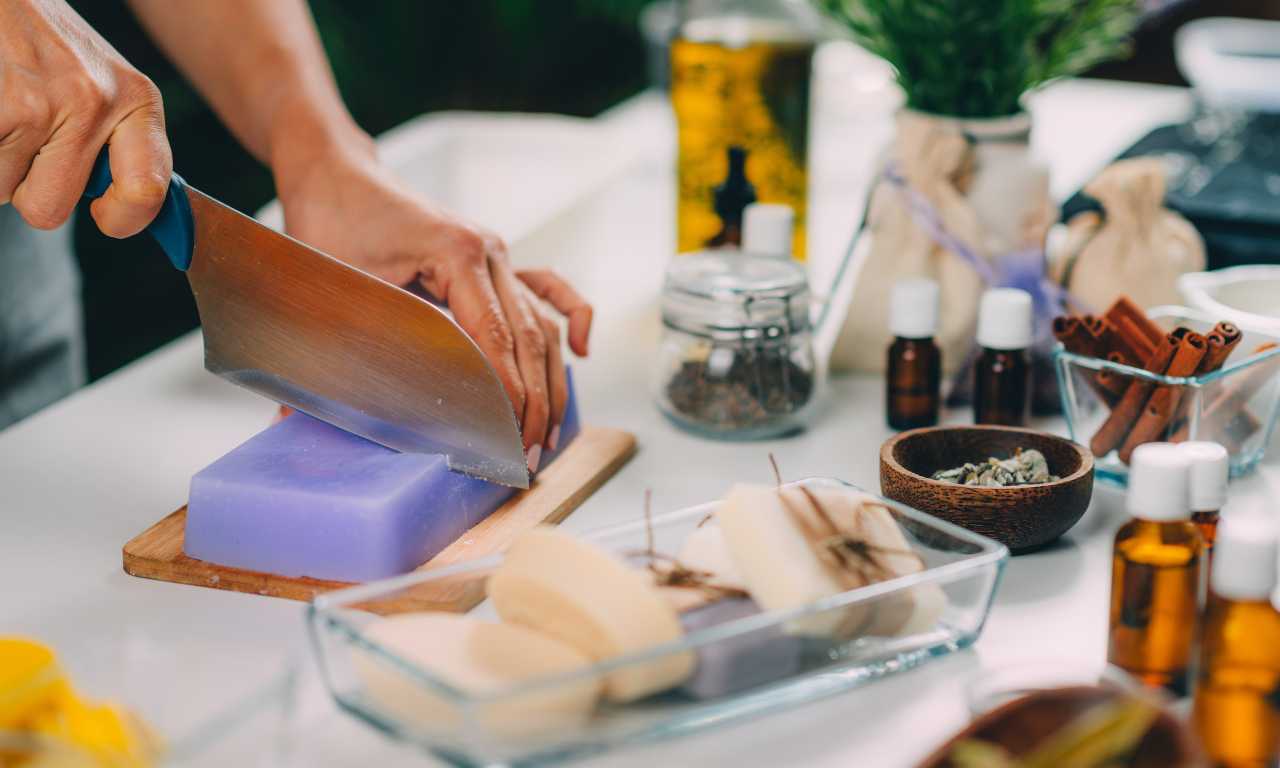
 Cockroaches are known to eat a variety of things, including soap. However, this behavior is not normal and is often a sign of a lack of other food sources or a contaminated environment.
Cockroaches are known to eat a variety of things, including soap. However, this behavior is not normal and is often a sign of a lack of other food sources or a contaminated environment.
Soap contains fats and oils that can be appealing to cockroaches. In their natural habitats, cockroaches feed on organic matter such as dead plant and animal material, and they are also known to feed on grease and other oils found in human environments. The soap can provide a source of these substances for the cockroaches.
In addition to being a source of food, soap may also provide other benefits to cockroaches. The oils and fats in soap can help to keep the cockroach’s exoskeleton soft and supple, which is important for their survival. Cockroaches also use the scent of certain substances, such as soap, to locate food and shelter.
Soap Can Be Detrimental to Cockroaches
Consuming soap can be harmful to cockroaches and can lead to various health problems. Soap can cause digestive problems for cockroaches, as their digestive systems are not designed to process this type of substance. Ingestion of soap can also lead to a buildup of harmful chemicals in the cockroach’s body, which can be toxic over time.
It is important to note that the presence of cockroaches eating soap is often a sign of a larger problem, such as an infestation or a dirty and unsanitary environment. In these situations, it is recommended to take steps to eliminate the cockroach population and to improve the cleanliness of the environment to prevent future infestations.
To summarize, while cockroaches may eat soap due to its fat and oil content and its potential to provide benefits such as softening their exoskeleton, it is not a normal behavior and can lead to harmful health consequences. The presence of cockroaches eating soap should be addressed through the elimination of the cockroach population and the improvement of the living environment.
Does Soap Attract Roaches?
Soap can attract cockroaches. Cockroaches are omnivores and will feed on a wide range of substances, including soap. The fats and oils in soap can be appealing to cockroaches, as they provide a source of nutrition. Cockroaches are known to feed on organic matter such as dead plant and animal material, as well as grease and other oils found in human environments. Soap can provide a source of these substances for the cockroaches.
However, it is important to note that soap is not the primary attractant for cockroaches. Cockroaches are attracted to a variety of other factors, such as food, water, and shelter. In fact, a dirty and unsanitary environment is often what attracts cockroaches in the first place. Cockroaches are attracted to environments where they can find a ready supply of food and water, as well as hiding places and shelter.
If you have a cockroach problem in your home, it is likely due to other factors such as poor sanitation, leaks, or cracks in the walls and floors that provide access for the cockroaches. To effectively control cockroaches, it is important to address these underlying issues, rather than just focusing on the soap.
In addition to being a potential food source, soap can also provide other benefits to cockroaches. The oils and fats in soap can help to keep the cockroach’s exoskeleton soft and supple, which is important for their survival. Cockroaches also use the scent of certain substances, such as soap, to locate food and shelter. Soap can provide a strong scent that can attract cockroaches and help them to locate food and shelter in your home.
It is important to note that consuming soap can be harmful to cockroaches and can lead to various health problems. Soap can cause digestive problems for cockroaches, as their digestive systems are not designed to process this type of substance. Ingestion of soap can also lead to a buildup of harmful chemicals in the cockroach’s body, which can be toxic over time.
Can Soap Get Contaminated If Cockroach Eats Them?
 Yes, soap can become contaminated if cockroaches consume them. Cockroaches are known to carry a variety of diseases and bacteria, and their presence in a soap can result in the contamination of the soap. This can pose a serious health risk to humans who use the contaminated soap.
Yes, soap can become contaminated if cockroaches consume them. Cockroaches are known to carry a variety of diseases and bacteria, and their presence in a soap can result in the contamination of the soap. This can pose a serious health risk to humans who use the contaminated soap.
Cockroaches can carry a range of pathogens, including bacteria such as Escherichia coli and Salmonella, as well as viruses, fungi, and parasites. These pathogens can be transferred to surfaces, including soap, through their feces, vomit, and body fluids. If soap becomes contaminated with cockroach feces, vomit, or other bodily fluids, it can serve as a vector for the spread of disease.
In addition to carrying pathogens, cockroaches can also spread allergens. Cockroach allergens are proteins found in cockroach feces, body parts, and secretions that can trigger an allergic reaction in sensitive individuals. If soap becomes contaminated with cockroach allergens, it can cause skin irritation and other health problems for people who use the soap.
To minimize the risk of soap contamination from cockroaches, it is important to maintain a clean and sanitary environment. This includes regularly cleaning surfaces, storing soap in sealed containers, and promptly removing any signs of cockroach activity. It is also important to regularly inspect for signs of contamination, and to replace any contaminated materials immediately.
In addition, it is important to implement effective cockroach control measures to reduce the risk of soap contamination. This may include sealing cracks and crevices, removing sources of food and water, and using insecticides to control cockroach populations.
How Cockroach Infestation Can Affect Soap Making?
 Cockroach infestations can have a significant impact on soap making. Cockroaches can cause a variety of problems in soap-making environments, including contamination of soap and ingredients, damage to equipment and facilities, and decreased productivity.
Cockroach infestations can have a significant impact on soap making. Cockroaches can cause a variety of problems in soap-making environments, including contamination of soap and ingredients, damage to equipment and facilities, and decreased productivity.
One of the main ways that cockroaches can affect soap making is through contamination of soap and ingredients. Cockroaches are known to carry a variety of diseases and bacteria, and their presence in a soap-making environment can result in the contamination of the soap and ingredients.
This can pose a serious health risk to humans who use the contaminated soap. In addition, contaminated soap can lead to decreased product quality and reduced sales, as consumers are unlikely to purchase soap that they perceive as being unsanitary or contaminated.
Another way that cockroach infestations can affect soap making is through damage to equipment and facilities. Cockroaches are known to chew on a variety of materials, including electrical wiring, insulation, and building materials.
This can result in damage to soap-making equipment, such as mixers and molds, as well as damage to the soap-making facility itself. In addition, cockroaches can cause fire hazards by chewing on electrical wiring, and they can also spread allergens, which can cause respiratory problems for soap makers and other workers in the soap-making environment.
Cockroach infestations can also decrease productivity in soap-making environments. Cockroaches can disrupt the soap-making process by interfering with the preparation and mixing of ingredients, as well as by contaminating the soap itself. This can result in decreased productivity and increased costs, as soap makers may need to take additional steps to ensure that the soap they produce is free from contamination.
To minimize the impact of cockroach infestations on soap making, it is important to implement effective cockroach control measures. This may include sealing cracks and crevices, removing sources of food and water, and using insecticides to control cockroach populations. In addition, it is important to regularly inspect soap-making equipment and ingredients for signs of cockroach activity, and to promptly remove any signs of infestation.
In conclusion, cockroach infestations can have a significant impact on soap making, including contamination of soap and ingredients, damage to equipment and facilities, and decreased productivity.
To minimize the impact of cockroach infestations on soap making, it is important to implement effective cockroach control measures, regularly inspect soap-making equipment and ingredients for signs of cockroach activity, and promptly remove any signs of infestation. By taking these precautions, you can help to ensure that your soap-making environment is safe and free from cockroach infestations.
Welcome to my blog. I have been doing pest control for years since my house, garden and pets were always attacked by various kinds of pests and as a result I had to know proper pest control techniques that works. In this blog I share all the tips and tricks that I know and I hope you’ll find it helpful.
